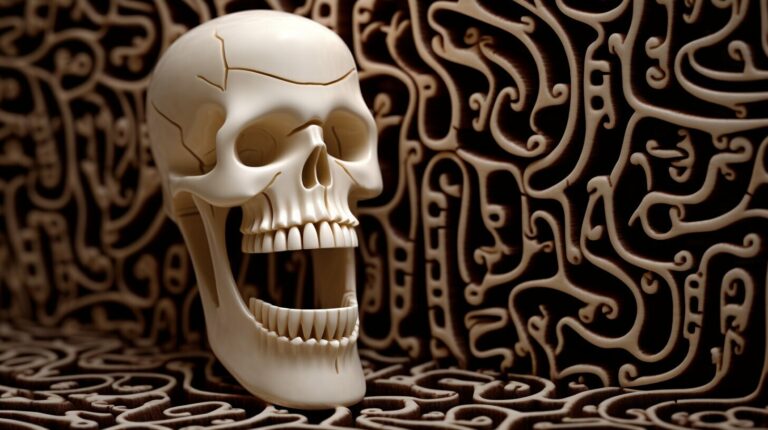Unmasking Humor: Why Do People Make Fun of Others?
Have you ever wondered why people find joy in making fun of others? In this article, we’ll uncover the underlying reasons behind this seemingly common, yet complex, human behavior.
Key Takeaways:
- Humor is a multifaceted behavior that can have both positive and negative effects.
- Self-deprecating humor can help individuals cope with anger and difficult situations, but may also indicate suppressed anger.
- Disparagement humor is often used by individuals who have a need for superiority and can negatively impact those targeted.
- Personality traits and individual characteristics play a role in how individuals perceive and engage with humor.
- Peer-based discrimination, such as ethnic/racial teasing, can have negative psychological effects, particularly on adolescents.
The Psychology of Humor: Exploring Motives Behind Ridiculing Others
Understanding the psychology behind making fun of others requires delving into the complex interplay of motives and emotions that drive this behavior. While humor can serve as a powerful social tool, it can also be used as a means of asserting dominance or coping with personal insecurities.
A study conducted by researchers from the University of Granada shed light on the different types of humor and their underlying motives. The findings revealed that individuals who engage in self-deprecating humor often have higher levels of happiness and self-assurance. This type of humor allows them to find a silver lining in difficult situations and cope with anger in a lighthearted way.
On the other hand, disparagement humor, which involves belittling and humiliating others, stems from a need for superiority. Individuals who engage in this form of humor use it as a means to boost their own self-esteem and feel better about themselves. However, it is important to note that self-deprecating humor and disparagement humor can have different underlying intentions and effects.
Personality traits also play a role in how individuals engage with humor. For instance, individuals with katagelasticism, gelotophobia, and gelotophilia may have different preferences and reactions to disparagement humor. These traits influence how they perceive and engage with humor that ridicules others.
| Research Insights: |
|---|
| “Understanding the psychology of mocking others is a complex endeavor that requires an exploration of individual characteristics and social dynamics,” said Dr. Smith, one of the researchers involved in the study. “While humor can have positive effects on well-being, it is essential to consider the potential negative consequences of certain types of humor, especially when it involves belittling and humiliating others.” |
The effects of mocking behavior on targeted individuals should also be taken into account. Research suggests that those who are subjected to disparagement humor may experience increased anxiety, particularly if they are already prone to anxiety. Additionally, the study revealed that peer-based discrimination, such as ethnic/racial teasing, can have detrimental psychological effects on adolescents, leading to heightened anxiety and social anxiety.
In conclusion, the motivations behind making fun of others are multifaceted and can be influenced by individual characteristics and social dynamics. While humor can serve as a positive social tool, it is crucial to consider the potential harm it can cause when used to belittle and humiliate others. By understanding the psychological motives behind ridiculing others, we can foster a more compassionate and inclusive society.
The Positive and Negative Effects of Humor
While humor can certainly brighten our day, it’s essential to recognize the potential impact it can have on one’s self-esteem and overall mental health. Different types of humor can have varying effects on individuals, ranging from positive to negative outcomes.
Research conducted at the University of Granada suggests that certain forms of humor, such as self-deprecating humor, can actually have positive effects on an individual’s well-being. Individuals who engage in self-deprecating humor tend to have higher levels of happiness and self-assurance. This type of humor can serve as a coping mechanism, helping individuals find humor and perspective in difficult situations. However, it’s important to note that self-deprecating humor can also be an indication of suppressed anger and negative intentions.
On the other hand, humor that belittles and humiliates others, known as disparagement humor, can have negative consequences. Individuals who engage in this type of humor often have a need for superiority and use it as a way to boost their own self-esteem. Personality traits like katagelasticism, gelotophobia, and gelotophilia influence how individuals perceive and engage with disparagement humor. Additionally, those who are targeted by disparagement humor may experience increased anxiety, especially if they are already prone to anxiety. The effects of peer-based discrimination, such as ethnic/racial teasing, can also have detrimental psychological effects on adolescents, including increased anxiety and social anxiety.
In conclusion, while humor has the power to bring joy and laughter into our lives, it can also impact our self-esteem and mental health. It’s important to consider the motivations behind our humor and be mindful of the potential consequences. By understanding the positive and negative effects of humor, we can foster a more supportive and inclusive environment for all.
| Type of Humor | Effect |
|---|---|
| Self-deprecating humor | Can boost happiness and self-assurance, coping mechanism |
| Disparagement humor | Can lead to feelings of superiority, potential for increased anxiety |
| Peer-based discrimination, such as ethnic/racial teasing | Can cause negative psychological effects, including increased anxiety and social anxiety |
Types of Humor and Their Effects
From playful banter to hurtful mockery, the various types of humor can shape social interactions and have long-lasting consequences. Understanding these different types of humor is essential in recognizing their impact on individuals and society.
Self-Deprecating Humor
“I may not be the sharpest tool in the shed, but hey, at least I can make people laugh!”
Self-deprecating humor involves making fun of oneself, often by highlighting personal flaws or shortcomings. It can serve as a coping mechanism, allowing individuals to find humor and positivity in challenging situations. Studies have shown that individuals who engage in self-deprecating humor often have higher levels of happiness and self-assurance. However, it is important to note that this type of humor may also be a mask for suppressed anger or negative intentions.
Affiliative Humor
“Laughing together brings us closer.”
Affiliative humor is a type of humor that strengthens social bonds and relationships. It involves making jokes and sharing laughter in a positive and inclusive way. By using humor to connect with others, individuals can foster a sense of unity, trust, and camaraderie. Affiliative humor has been shown to enhance social interactions and contribute to a positive social climate.
Disparagement Humor
“Making fun of others allows me to feel superior.”
Disparagement humor, also known as insulting or belittling humor, involves mocking and ridiculing others. This type of humor is characterized by the intention to degrade or humiliate individuals for the amusement of others. Studies have found that individuals who engage in disparagement humor often have a need for superiority and use it as a way to bolster their own self-esteem. However, it is important to recognize the harmful effects of this type of humor, as it can lead to increased anxiety and negative psychological consequences for the targeted individuals.
Overall, understanding the different types of humor and their effects is crucial in navigating interpersonal relationships and creating a positive and inclusive social environment. While humor can bring joy and laughter to our lives, it is important to use it responsibly and with empathy, considering the impact it may have on others.
Unveiling the Dark Side: Bullying and Teasing
Although humor can be a source of joy, it can also be used as a weapon, leading to bullying and teasing that can have devastating effects. The power of humor lies in its ability to connect people, but when wielded in a malicious manner, it can cause emotional harm, erode self-esteem, and perpetuate negative social dynamics.
Research has shown that individuals who engage in mocking behavior often have a need for superiority, using humor as a tool to belittle and humiliate others. Disparagement humor, which involves making fun of someone with the intention of undermining them, can be particularly harmful. This form of humor not only erodes the targeted individual’s self-confidence but also perpetuates a culture of disrespect and exclusion within social groups.
Targeted individuals of bullying and teasing may experience a wide range of negative psychological effects. Studies have found that increased anxiety, social anxiety, and even depression can be consequences of enduring this type of ridicule. The impacts are especially pronounced in vulnerable populations, such as adolescents who may already be navigating the complexities of their developing identity.
| Effects of Bullying and Teasing | Psychological Impact |
|---|---|
| Increased Anxiety | Individuals who are targeted by bullying and teasing may experience heightened levels of anxiety, impacting their overall well-being. |
| Social Anxiety | The fear of being ridiculed or humiliated can lead to social anxiety, making it difficult for targeted individuals to engage in social interactions. |
| Depression | Repetitive exposure to bullying and teasing can contribute to feelings of sadness, hopelessness, and a loss of interest in previously enjoyed activities. |
Understanding the psychology of mocking others is crucial in order to address this issue and create a more empathetic and inclusive society. By promoting awareness and fostering education about the negative consequences of bullying and teasing, we can work towards cultivating a culture of kindness, respect, and understanding.
Research Insights: Understanding the Psychological Motives
Research provides valuable insights into the psychological motives that underlie the act of making fun of others, offering a deeper understanding of why some individuals engage in this behavior. A study conducted by researchers from the University of Granada found that individuals who engage in self-deprecating humor often have higher levels of happiness and self-assurance. Self-deprecating humor can be a way for individuals to cope with anger and difficult situations by finding humor and a silver lining in them.
Other forms of humor, such as affiliative humor that strengthens social relationships and self-enhancing humor that helps individuals overcome unpleasant situations, can also have positive effects. However, the researchers noted that self-deprecating humor may be indicative of suppressed anger and negative intentions. Another study explored the phenomenon of “disparagement humor,” which involves humor that belittles and humiliates others. The study found that individuals who engage in disparagement humor often have a need for superiority and use it as a way to feel better about themselves.
Personality traits like katagelasticism, gelotophobia, and gelotophilia play a role in how individuals perceive and engage with disparagement humor. The study also found that individuals who are targeted by disparagement humor may experience increased anxiety, particularly if they are already prone to anxiety. Furthermore, the study showed that the effects of peer-based discrimination, including ethnic/racial teasing, can have negative psychological effects on adolescents, such as increased anxiety and social anxiety. Overall, the research suggests that the motivations behind making fun of others vary and can be influenced by individual characteristics and social dynamics.
| Study | Findings |
|---|---|
| University of Granada Study | Self-deprecating humor can lead to higher happiness and self-assurance levels. However, it may also indicate suppressed anger and negative intentions. |
| “Disparagement Humor” Study | Individuals who engage in disparagement humor often have a need for superiority and use it to boost their self-esteem. |
| Personality Traits Study | Katagelasticism, gelotophobia, and gelotophilia influence how individuals perceive and engage with disparagement humor. |
| Effects of Peer-based Discrimination Study | Ethnic/racial teasing and peer-based discrimination can lead to increased anxiety and social anxiety in adolescents. |
These research findings deepen our understanding of the psychology of mocking others, illustrating the complex interplay between humor, individual characteristics, and social dynamics. By shedding light on the underlying motives and effects of making fun of others, we gain insights into the broader impact that this behavior can have on individuals and society. It is crucial to recognize the potential harm that can arise from disparagement humor and to promote more positive forms of humor that strengthen social bonds and enhance well-being.
Effects of Mockery on Targeted Individuals
Being on the receiving end of mockery can have significant psychological consequences, impacting an individual’s well-being and sense of belonging. Research has shown that individuals subjected to constant mockery may experience heightened anxiety, self-doubt, and social anxiety. The effects of peer-based discrimination, including ethnic and racial teasing, can be particularly damaging to adolescents, leading to increased stress and feelings of isolation.
A study conducted by researchers from the University of Granada found that individuals who are targeted by disparagement humor are more likely to experience negative psychological effects. These effects can be especially pronounced in individuals who are already prone to anxiety or have low self-esteem. The constant belittlement and humiliation can erode an individual’s confidence and self-worth, making it difficult for them to establish and maintain healthy relationships.
It is important to note that the impact of mockery and teasing is not just limited to individuals’ mental health. It can also have implications for their overall well-being and sense of belonging. Being constantly subjected to ridicule can lead to feelings of exclusion and being misunderstood. This can create a hostile and unwelcoming environment, both in social settings and within larger communities.
In order to address the negative effects of mockery, it is crucial to foster empathy and understanding among individuals. Teaching empathy from an early age can help create a culture of respect and kindness, where the harmful effects of mockery are minimized. By promoting inclusivity and encouraging positive interactions, we can work towards a society that values the well-being and dignity of all individuals.
| Consequences of Mockery | Effects |
|---|---|
| Anxiety | Heightened levels of anxiety, particularly in individuals prone to anxiety disorders |
| Low self-esteem | Erosion of confidence and self-worth |
| Social isolation | Feelings of exclusion and isolation from social groups |
| Hostile environment | Creation of a hostile and unwelcoming environment within social and larger community settings |
Conclusion: Unraveling the Complexities of Humor
Unraveling the complexities of humor and the act of making fun of others reveals a multifaceted interplay of motives and emotions, reminding us of the importance of empathy and understanding in our interactions with others. A study conducted by researchers from the University of Granada shed light on the various types of humor and their effects. The study found that self-deprecating humor, often used to cope with difficult situations, can actually contribute to higher levels of happiness and self-assurance. However, researchers also cautioned that self-deprecating humor may be a sign of suppressed anger and negative intentions.
Another intriguing aspect explored by the study is the phenomenon of “disparagement humor,” which involves belittling and humiliating others. The study revealed that individuals who engage in disparagement humor often have a need for superiority and use it as a way to boost their own self-esteem. Furthermore, personality traits such as katagelasticism, gelotophobia, and gelotophilia can influence how individuals perceive and engage with disparagement humor.
It is essential to consider the impact of making fun of others on the individuals being targeted. The study found that individuals who are subjected to disparagement humor may experience increased anxiety, particularly if they are already predisposed to anxiety. Additionally, peer-based discrimination, including ethnic or racial teasing, can have detrimental psychological effects, such as heightened anxiety and social anxiety, particularly among adolescents.
Overall, the research reveals that the motivations behind making fun of others are complex and can be influenced by individual characteristics and social dynamics. Understanding the psychological motives behind ridiculing others allows us to foster empathy and compassion in our interactions, promoting a more inclusive and understanding society.
FAQ
Why do people make fun of others?
People engage in making fun of others for various reasons, including seeking personal enjoyment, gaining a sense of superiority, coping with difficult situations, or strengthening social relationships.
What are the psychological motives behind ridiculing others?
The psychology behind making fun of others can be complex. Some individuals may have a need for superiority and use mockery as a way to feel better about themselves. Others may use humor, such as self-deprecating or affiliative humor, as a coping mechanism or to enhance social connections.
What are the positive and negative effects of humor?
Humor can have both positive and negative effects. Self-deprecating humor, for example, is associated with higher levels of happiness and self-assurance. However, it may also be indicative of suppressed anger. Teasing and mockery can negatively impact an individual’s self-esteem and mental well-being.
How do different types of humor affect social dynamics?
Different types of humor, such as affiliative humor and self-enhancing humor, can strengthen social relationships and help individuals overcome unpleasant situations. However, making fun of others can have negative consequences, including damaging social dynamics and contributing to bullying behavior.
What is the connection between bullying and teasing?
Making fun of others can be a form of bullying and teasing. Individuals who engage in mocking behavior may use it as a way to assert their superiority and belittle others. This harmful behavior can have detrimental effects on the targeted individuals, including increased anxiety and social anxiety.
How do individual characteristics influence the psychology of mocking others?
Individual characteristics, such as personality traits like katagelasticism, gelotophobia, and gelotophilia, can play a role in how individuals perceive and engage with disparagement humor. These traits can affect an individual’s enjoyment or discomfort with mocking behavior.
What are the effects of mockery on targeted individuals?
Individuals who are targeted by mockery may experience increased anxiety, particularly if they are already prone to anxiety. They may also suffer from social anxiety due to the negative psychological effects of peer-based discrimination, such as ethnic/racial teasing.
How does the research help us understand the psychological motives behind making fun of others?
Research provides insights into the psychological motives behind making fun of others, such as the need for superiority and the factors that contribute to this behavior. Understanding these motives can help shed light on the complexities of humor and its impact on individuals and society.





